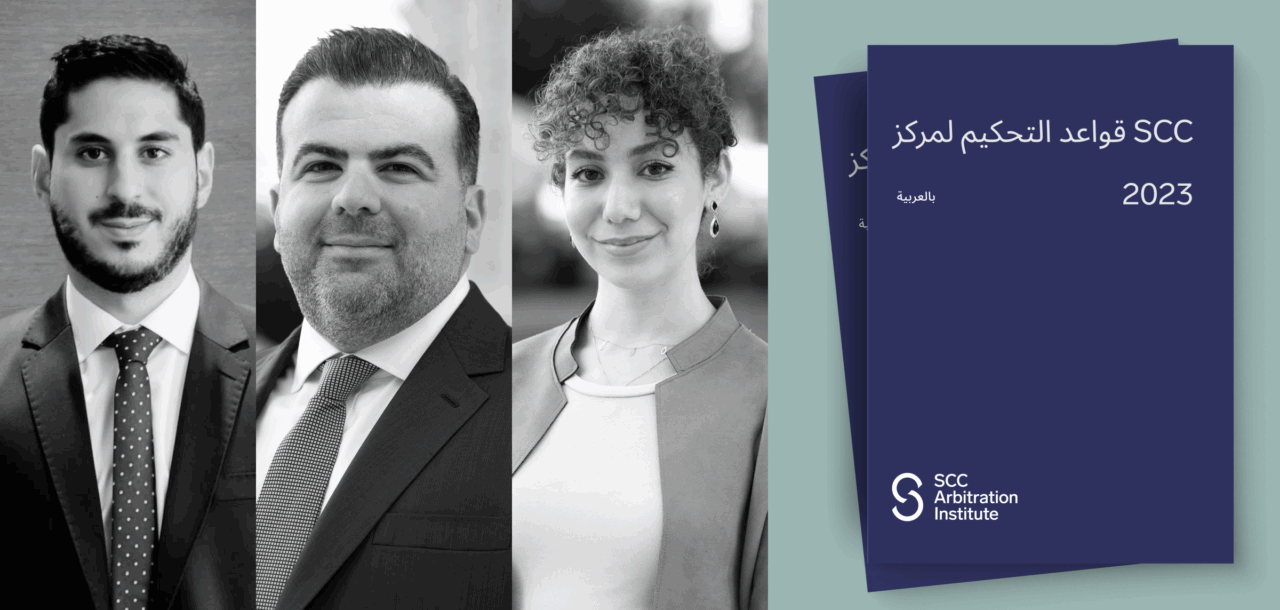SCC Rules now available in Arabic
SCC is pleased to announce that the SCC Arbitration Rules are now available in Arabic, marking a significant milestone in the Institute's commitment to accessibility and international reach. This development represents a strategic step forward in connecting with the dynamic Arabic-speaking legal and business communities across the Middle East and North Africa.
Published

The availability of the SCC Rules in Arabic addresses a longstanding barrier that has limited access to one of the world’s leading arbitration institutions for Arabic-speaking practitioners and businesses. By providing these essential rules in Arabic, the SCC demonstrates its dedication to making international arbitration more inclusive and accessible to a broader global audience.
“Language should never be an obstacle to accessing quality dispute resolution services,” says Lina Krait, Legal Counsel at SCC and Arabic speaker. “This translation opens doors for Arabic-speaking businesses and legal practitioners who can now engage with international arbitration on equal terms.”
The translation process has been conducted with meticulous attention to legal accuracy. Working closely with leading Arabic legal experts and linguists, the SCC has ensured that the translated Rules maintain the precise legal meaning whilst being accessible to Arabic-speaking legal practitioners. The SCC extends its sincere gratitude to Faris Nasrallah (Independent Arbitrator, Academic & Head of Arbitration, Crescent Petroleum), Anees Naim (Arbitration Lawyer, Founder & Managing Director, Bablex), and Dima Fakhreddine (Translation Specialist & Managing Translation Analyst, Bablex) for their invaluable contributions to this translation project. Their expertise and dedication have been instrumental in ensuring the highest quality and accuracy of the Arabic version of the Rules.
The Arabic translation joins the SCC’s existing multilingual resources, reinforcing the Institute’s reputation for accommodating the diverse needs of international parties. This development is expected to facilitate greater participation from Arabic-speaking businesses and legal practitioners in SCC proceedings.